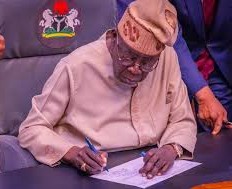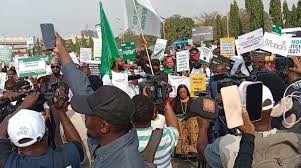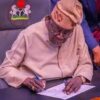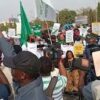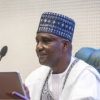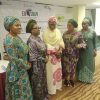As Nigeria approaches its upcoming major elections in 2026 and 2027, the political environment is becoming increasingly active. Promotional materials, social media content, rallies, and indirect endorsements are appearing in public spaces well before the commencement of official campaign periods as defined by law. Although these activities may seem innocuous, early campaigning is emerging as
As Nigeria approaches its upcoming major elections in 2026 and 2027, the political environment is becoming increasingly active. Promotional materials, social media content, rallies, and indirect endorsements are appearing in public spaces well before the commencement of official campaign periods as defined by law. Although these activities may seem innocuous, early campaigning is emerging as a significant challenge to the integrity of Nigeria’s electoral process.
Nigeria’s Electoral Act 2022 specifies that election campaigns are permitted to start 150 days before an election and must end 24 hours before polling. This schedule allows for equal opportunity among political parties and enables INEC to oversee campaign periods.
There have been reports of some political parties participating in campaign activities before the official start date set by INEC. These actions have contributed to observations of inconsistencies in the electoral process and led to campaign activities occurring before the permitted period.
Historical data from Nigerian elections indicate that early campaigning can confer structural advantages on certain political parties. For example, in 2015, candidates who initiated mobilisation efforts before the official campaign period established significant media presence and developed grassroots networks before the Independent National Electoral Commission (INEC) opened the formal campaign window.
In 2019, social media contributed to this trend as candidates used online influencers and digital marketing to reach voters prior to official campaign periods. These approaches affected public perceptions of fairness in the electoral process and influenced the direction and pace of campaigns before the formal start dates.
Why Do Politicians Start Campaigns Early?
Political party aspirants frequently begin their campaigns early to demonstrate influence, establish dominance, and shape national discourse ahead of elections. Additionally, internal party conflicts may prompt some candidates to initiate indirect campaigns—often through cultural festivals, philanthropic initiatives, and branded events—to outpace their competitors and secure endorsements within the party.
Most individuals involved use social media platforms such as Facebook, Instagram, TikTok, YouTube, and X (Twitter) to increase their visibility. Due to the lack of explicit penalties, candidates often experience minimal consequences for violating regulations, which can make early campaigning more common.
The Effect on Democracy
Candidates who begin their campaigns early often have a significant presence in the media and public spaces, which can place those adhering to campaign regulations at a disadvantage. For example, during the 2015 and 2019 elections, individuals who established early momentum were ultimately able to surpass competitors who complied with the official campaign schedule.
The Money Factor: Extended campaigns require additional funding, which can increase the cost of political participation. This situation may benefit candidates with more financial resources and present challenges for those with fewer resources.
Erosion of Trust: When voters observe politicians breaking rules without apparent consequences, confidence in the fairness of elections may decrease. This can result in reduced engagement or increased suspicion regarding the integrity of the electoral process.
Governance Distraction: Officeholders who seek re-election may allocate time to campaign strategies, which can result in less focus on immediate governance responsibilities.
Recommendations
To restore fairness and integrity to Nigeria’s electoral process, it is imperative to implement a series of comprehensive reforms. Additionally, violations of electoral laws should be subject to appropriate penalties. For example, Nigeria might consider adopting early campaign practices, as observed in countries such as Ghana, Kenya, India, and the United Kingdom, in line with international best practices.
Furthermore, to address potential loopholes, the law should establish clear and enforceable sanctions for early campaigning, ranging from monetary fines to disqualification in severe instances. Such measures would ensure that parties are both responsible for internally regulating their candidates and held accountable if they promote or disregard premature campaign activities.
However, the Independent National Electoral Commission (INEC) should promote public awareness campaigns designed to educate citizens on campaign timelines and the risks associated with premature campaigning. Such initiatives can enhance accountability by empowering voters to demand adherence to established regulations.
Finally, INEC may utilise technology-based monitoring of campaign activities, particularly on social media, to track compliance and identify instances of violation.


